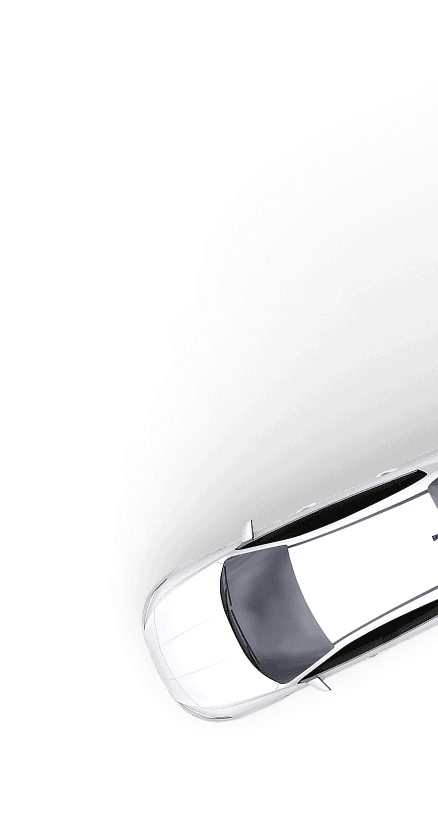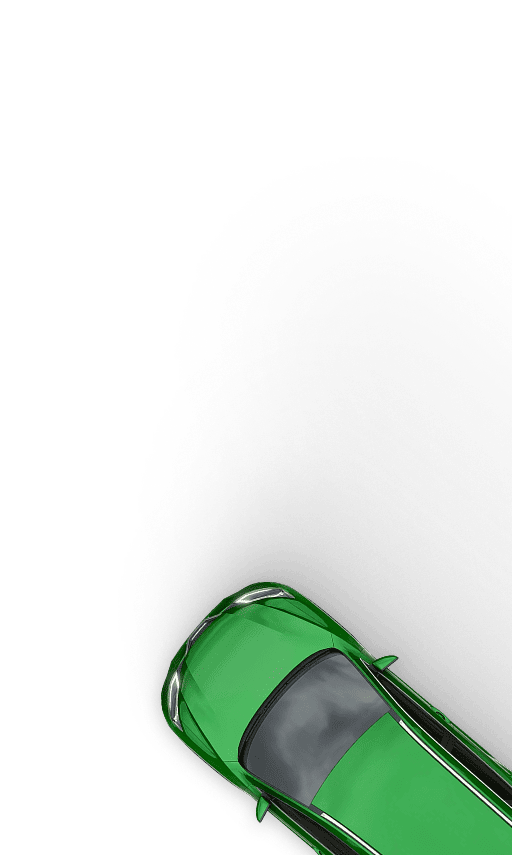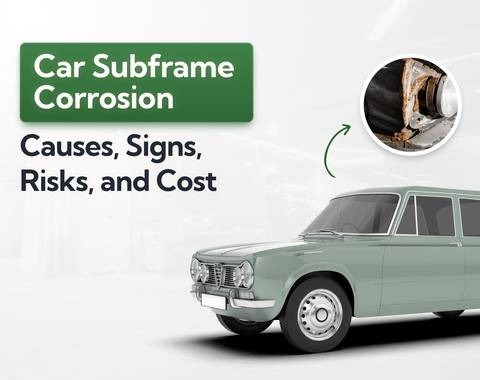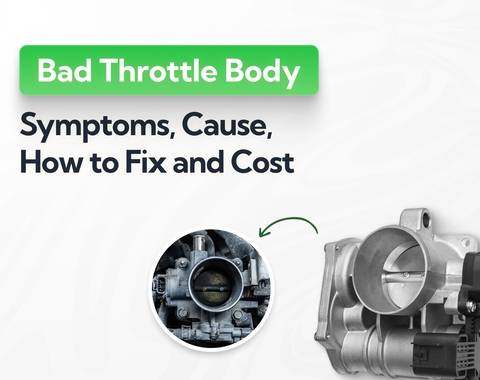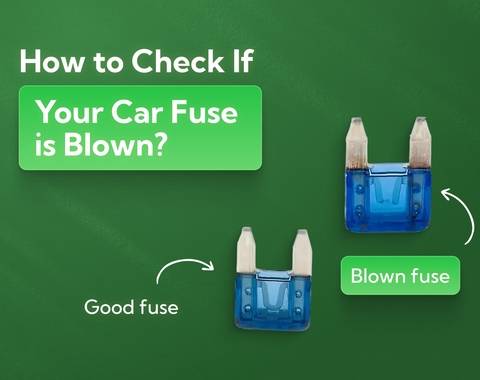How to Get Cash for Your Junk Car
In this guide, we’ll show you how to scrap your old, damaged, or MOT-failed car into cash as quickly as possible. You’ll learn how to get the best price from licensed UK scrap buyers, avoid scams and make the process hassle-free, from instant quotes to free collection.
Last updated: 9th October, 2025

Award-winning CEO driving growth and social impact across automotive, recycling, and technology-led enterprise platforms.

Listen to this story
If your car is old, damaged or simply not worth fixing anymore, you can still turn it into cash. Across the UK, scrap and salvage buyers will pay for vehicles in pretty much any condition, even if they’re non-runners, MOT failures, or insurance write-offs.
The process is a lot simpler than most people think. With the right approach, you can find a licensed buyer, get a fair price, and have the car collected without lifting a spanner.
In this guide, we’ll show you how it works and the steps you need to take to make sure you get the best deal for your junk car.
What's in this article
- 3. Scrap metal prices in the UK right now
- 4. Top ways to get cash for your junk car in the UK
- 5. Local vs national buyers: who pays more?
- 6. How to sell or scrap your junk car
- 6.1 1. Gather the right documents
- 6.2 2. Get multiple quotes
- 6.3 3. Book a free collection or arrange delivery
- 6.4 4. Notify the DVLA
- 6.5 What to expect on the day of pickup
- 6.6 Only use licensed ATFs
- 6.7 Avoid “cash in hand” offers
- 6.8 Watch out for price changes on collection
- 6.9 Check reviews and company details
- 6.10 Don’t hand over keys or documents before agreeing on payment terms
- 7. What happens to your car after it’s scrapped?
- 8. Final tips to get the most money for your junk car
- 9. The bottom line
Is your old car really junk?
No, your car isn’t ‘junk’ in the way you’re probably thinking (it’s not worthless). One man’s trash is another man’s treasure, as they say. And in this case, there’s always a local scrap buyer out there ready to take it off your hands.
What counts as a junk car in the UK?
A “junk” car usually means one that’s no longer economical to repair. It might have failed its MOT, been written off by an insurer, or simply reached the end of its roadworthy life. Even if it doesn’t run, scrap dealers and dismantlers make money from the metal, parts, and materials.
When is it better to scrap vs sell?
If the cost of repairs is higher than the car’s market value, scrapping is the smarter move. The same goes for vehicles that have been in serious accidents or suffer from structural corrosion.
On the other hand, if the car still drives and has a valid MOT, you’ll probably get a better return selling it privately or to a dealer.
Common mistakes car owners make when valuing their junk car
We see plenty of owners assume a non-running or damaged car is completely worthless and accept the first lowball offer they get. Others forget to check the going scrap rate for metal or overlook the resale value of usable parts. Some fail to factor in the convenience and savings from free collection services.
All of these cost you big time when you’re putting the car up to sell.
How much is your junk car worth in 2025?
How much your junk car is worth depends mostly on its weight. Scrap metal sells by weight. But if your car hides reusable parts worth a lot, then you can get even more.
Key factors that affect the price (even if it doesn’t start)
There are seven main factors that affect the sale price of a junk car:
- Metal weight and type: Steel, aluminium and other metals each fetch different rates. Heavier cars bring more cash.
- Condition of reusable components: Parts like bumpers, lights, catalytic converters and even electronics retain value. Removing and offering them separately can push up your total return.
- Vehicle make, model and age: British classics or rare models might attract niche buyers, even when it's in bad shape.
- Ease of collection: Cars that are easy to access, start or tow will earn you a better quote and smoother pickup.
- Location: Scrap yards near urban centres may offer higher rates due to lower haulage costs.
- Paperwork in order: Having a V5C and a clear, non-fraught history gives buyers confidence, translating into better offers.
- Timing and market demand: Scrap metal prices fluctuate. Selling when demand is high can significantly boost your haul.
Scrap metal prices in the UK right now
As of 2025, scrap steel fetches around £140 to £180 per tonne, while aluminium goes for £950 to £1,100 per tonne. General scrap metal prices range from £100 to £300 per tonne, according to most sources.
How to estimate your car’s value online for free
With us, it’s instant. No strings attached. Type in your registration number and your postcode, and you’ll see a valuation in real time. It’s accurate and reflects what we’ll pay on the spot when you book a free pickup.
Get your instant scrap car quote here.
Can you sell a junk car without a V5C logbook?
You can, but we strongly advise against it. You’ll get a much lower quote because buyers see missing paperwork as risky (the car could be stolen). Not to mention, getting a replacement V5C is incredibly easy and only costs £25. Apply online, and it arrives in just 5 working days.
Top ways to get cash for your junk car in the UK
There’s more than one route to turning your unwanted car into money. The best option depends on its condition, how quickly you want to sell, and whether you’re willing to do a bit of the legwork yourself.
1. Sell to a licensed scrap yard (Authorised Treatment Facility).
These are government-approved sites that handle end-of-life vehicles legally and safely. They’ll pay based on scrap weight, issue a Certificate of Destruction, and sometimes collect for free (though you might be responsible for getting it to the ATF yourself).
2. Use an online car buying service.
Comparison sites let you enter your reg and postcode to get multiple instant quotes from local ATFs. This is the quickest way to check who’s offering the best deal in your area without calling around. In our case, we’ll arrange a free pickup and pay you on the spot via secure bank transfer.
3. Sell directly to a parts dealer or breaker.
If your car has high-value parts in demand, like a catalytic converter, alloy wheels, or an intact engine, a specialist breaker might pay more than scrap value alone. It’ll be extra work to dismantle if one buyer doesn’t want to take all the parts, though.
4. Trade in at a dealership.
A few dealers will take non-running cars as part exchange, especially if they want your business for a replacement vehicle. Just be aware that trade-in offers for junk cars are usually lower than private sales.
5. Sell privately for spares or repairs.
List your car “as is” on classified sites. DIY mechanics and enthusiasts sometimes look for donor vehicles, even if they can’t be driven. This can fetch more money if your car’s in demand, but it’s slower and almost always attracts time-wasters.
6. Contact a charity car donation scheme.
Some UK charities accept old cars, sell them for scrap and use the proceeds to fund their work. While you won’t pocket the money, you may be able to claim Gift Aid and help a cause you care about.
Local vs national buyers: who pays more?
It depends on your priorities.
Local buyers often have lower transport costs, which can mean a slightly better offer, especially if they’re close enough to collect for free. You’ll also get paid faster and deal directly with the decision-maker.
National buyers have larger networks and more resources. They might offer higher prices if they can shift your car to the most profitable location in their chain. However, some deduct collection or admin fees, so check the fine print.
An online car buying service like ours combines the best of both worlds: a nationwide network of local buyers and pickup services.
How to sell or scrap your junk car
Like I said, selling or scrapping a junk car in the UK is straightforward if you follow the right steps from the start.
1. Gather the right documents
Have your V5C logbook, proof of identity and proof of address ready. These make the sale legal, secure and more attractive to buyers. Without a V5C, you’ll get lower offers and potential legal headaches. And without proof of ID/address, a scrap yard won’t take the car.
If you’re selling it privately, you should also have your service history handy. Buyers will ask for it and it’ll help you sell for higher.
2. Get multiple quotes
Prices sometimes vary widely between buyers. A quick comparison can add £50 to £200 to your payout. Check both local and national options and make sure you compare final prices after fees or deductions.
With us, you’ll be able to compare multiple scrap buyers at once, then go with the offer that’s best for you.
3. Book a free collection or arrange delivery
Most scrap and salvage buyers offer free collection. Confirm whether this is included in the quoted price (some purposely hide the fact that it isn’t). If your car still drives, delivering it yourself could sometimes increase the offer.
4. Notify the DVLA
Once the car is sold or scrapped, you’re responsible for telling the DVLA. This officially transfers ownership and stops you from being liable for tax, fines and penalties of up to £1,000. You can do it online in minutes using the DVLA’s online service, using the “sell, transfer or part-exchange your vehicle to the motor trade” section of your V5C logbook.
What to expect on the day of pickup
The driver will check your documents, inspect the vehicle and confirm the agreed price. You’ll get paid by bank transfer or cheque (cash payments for scrap cars are illegal in the UK under the Scrap Metal Dealers Act 2013). They’ll then load the car, issue a receipt and, if scrapped, arrange your Certificate of Destruction.
How to avoid scams and dodgy dealers
The scrap and salvage trade is regulated in the UK, but there are still rogue operators who cut corners or try to rip sellers off. Knowing the warning signs will save you money and a whole lot of trouble.
Only use licensed ATFs
Authorised Treatment Facilities (ATFs) are the only places legally allowed to scrap cars. They have to follow strict environmental and record-keeping rules. Always ask for their licence number and verify it with the Environment Agency.
Avoid “cash in hand” offers
Since 2013, it’s illegal to pay cash for scrap cars in the UK. Anyone offering cash is breaking the law. That means they’re probably cutting other corners, too.
Watch out for price changes on collection
Some buyers will quote high, then claim the car is worth less when they arrive. Stop this by providing accurate details up front, getting the quote in writing and refusing to deal with anyone who tries to renegotiate without good reason.
Check reviews and company details
Look for consistent positive feedback on Google, Trustpilot, or Facebook. Check they have a real address, working phone number, and a UK company registration.
Don’t hand over keys or documents before agreeing on payment terms
Agree on how and when you’ll be paid before you sign or hand over anything. Legit buyers will have no problem confirming this in writing.
What happens to your car after it’s scrapped?
In the UK, the vehicle scrappage process is tightly controlled to protect the environment and recover as much value as possible, then recycle as much of the rest as possible.
Depollution
At an Authorised Treatment Facility, fluids like oil, coolant and fuel are drained and disposed of safely through a process called “depollution”. The ATF also removes materials like batteries and airbags at this point.
Parts salvage
Usable components like engines, gearboxes, alloy wheels and catalytic converters are removed, tested and sold on for reuse if they can be. This keeps other cars on the road for longer and reduces waste (in addition to keeping the scrap yard profitable).
Metal recycling
The remaining shell is broken down and metals like steel and aluminium are separated. These are sent to mills and foundries to be turned into new products, from construction materials to household appliances.
Final disposal
Anything that can’t be reused or recycled is disposed of according to the UK’s strict environmental regulations. The facility then issues a Certificate of Destruction to confirm the vehicle is officially scrapped. ATFs in our network reuse/recycle at least 95% of the vehicle.
Final tips to get the most money for your junk car
Even if you get all of the above right, there are a few areas we see drivers mess up. If you bring a dirty car or keep valuable parts you could’ve gotten more for, you’re leaving tons of money on the table.
Clean it up (it still matters)
A quick wash and tidy can make a surprising difference. Even for scrap, a cleaner car looks better cared for. It definitely helps with negotiations when you’re selling for parts or repairs because (i) everything looks newer and the buyer won’t have to do the refurbishing themselves.
Remove valuable parts (if you know what you’re doing)
Items like alloy wheels, catalytic converters and upgraded stereos are worth a lot more when sold separately. Only attempt this if you have the tools and skills, though, because damaging the car will lower its scrap value.
Timing the market: when scrap prices peak
Scrap metal prices rise and fall with global demand. Selling when rates are high can mean a significant boost in payout. Keep an eye on trends and don’t rush the sale unless you need quick cash or want the car gone ASAP.
Pro tip: In the UK, scrap metal tends to fetch higher per-tonne prices during the summer and early autumn months because increased construction activity drives greater demand for scrap materials.
Why transparency gets you better offers.
Accurately describing the car’s condition, faults, and missing parts helps buyers give fair and reliable quotes. Being upfront also helps you avoid price drops on collection day and builds trust with the person or scrap yard buying the car off you.
What the experts say

Anthony Sharkey
The bottom line
Even if your car is a non-runner, MOT failure or write-off, it still holds value. The key is knowing your options, comparing offers and dealing only with licensed, reputable buyers.
You can turn that so-called “junk” car into a fair payout by having your paperwork ready, being upfront about its condition and timing the sale well. And with us, you can do it within 24 to 48 hours.
Frequently asked questions
Yes, you can sell a car that’s been written off. If it’s a Category A or B write-off, it must be scrapped and cannot return to the road. If it’s Cat S or Cat N, you can repair and resell it, though you’re required to disclose its status to buyers.
Yes, you can sell a car that’s been written off. If it’s a Category A or B write-off, it must be scrapped and cannot return to the road. If it’s Cat S or Cat N, you can repair and resell it, though you’re required to disclose its status to buyers.
Yes, you can sell a car that’s been written off. If it’s a Category A or B write-off, it must be scrapped and cannot return to the road. If it’s Cat S or Cat N, you can repair and resell it, though you’re required to disclose its status to buyers.
You don’t need insurance after your car has been collected and scrapped. But we recommend keeping it insured until pickup. Otherwise, if it’s damaged, stolen or causes an incident beforehand, you could be liable for the entire cost.
You can scrap a car that isn’t in your name, but you’ll need proper documentation and authorisation. That means the V5C logbook filled out by the owner, and a signed letter from them granting permission to scrap the car, plus their photo ID.
The DVLA will automatically cancel your vehicle tax once they’ve been notified that the car’s been scrapped. If you pay by Direct Debit, it stops automatically. You’ll get a refund cheque for any full months remaining.
You can get paid for your scrap car very quickly, as soon as the same day. We can give you an instant quote, arrange same-day or next-day pickup and pay you on the spot. Pickup is free and the quote is no-obligation.
You can take a junk car without a title to a scrap yard, but having the V5C logbook will get you a better price and make the process smoother. It’s easy to replace and saves you from having to post extra paperwork to the DVLA.
About Car.co.uk

Share on
Latest news & blogs

